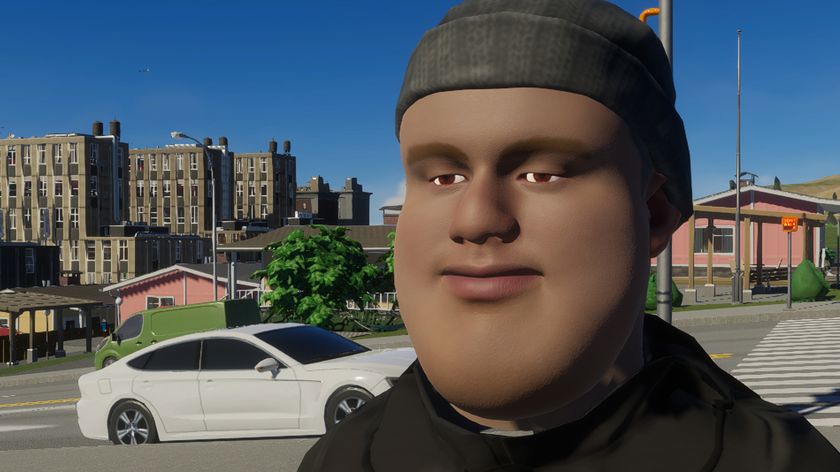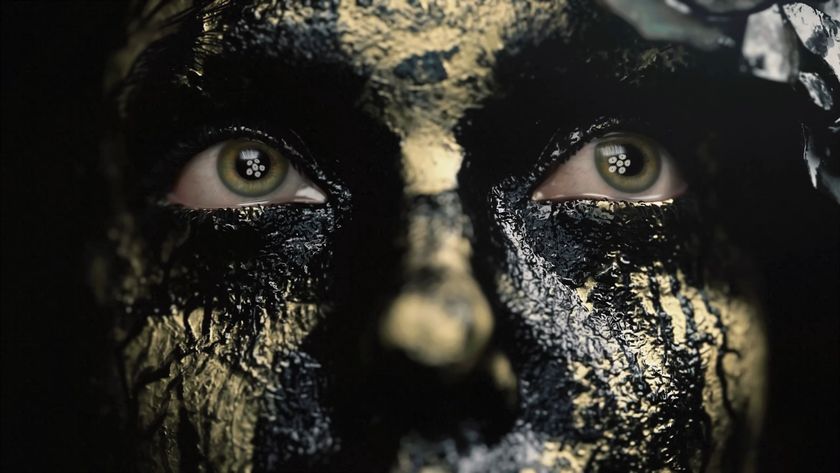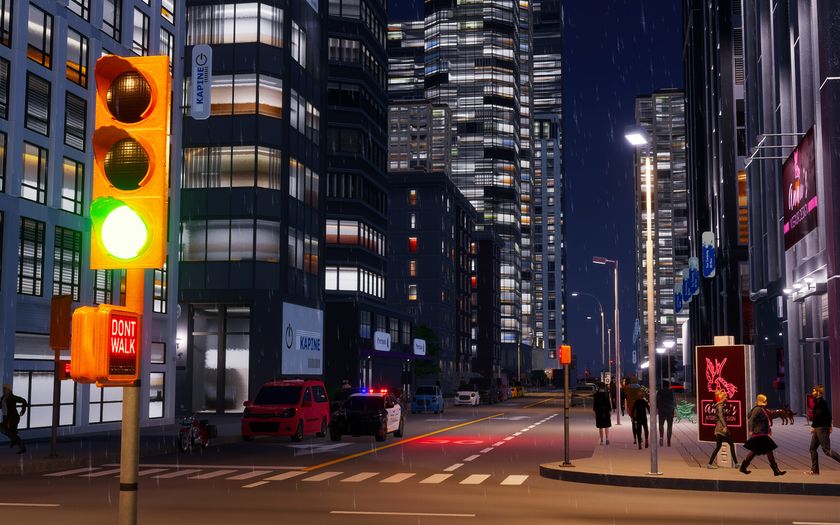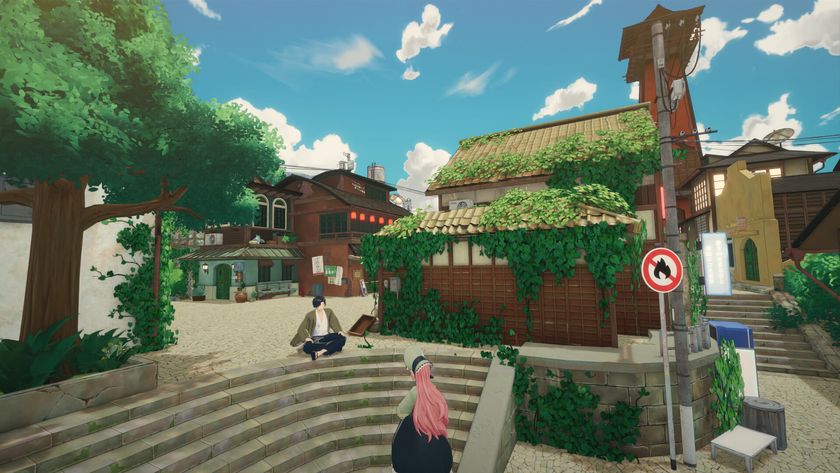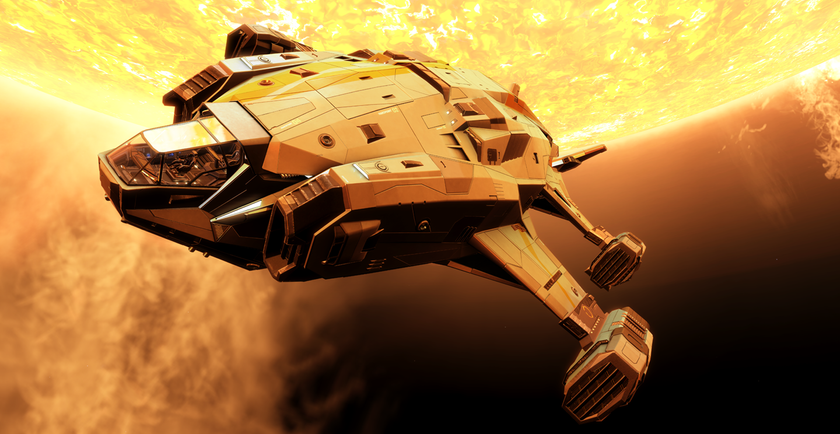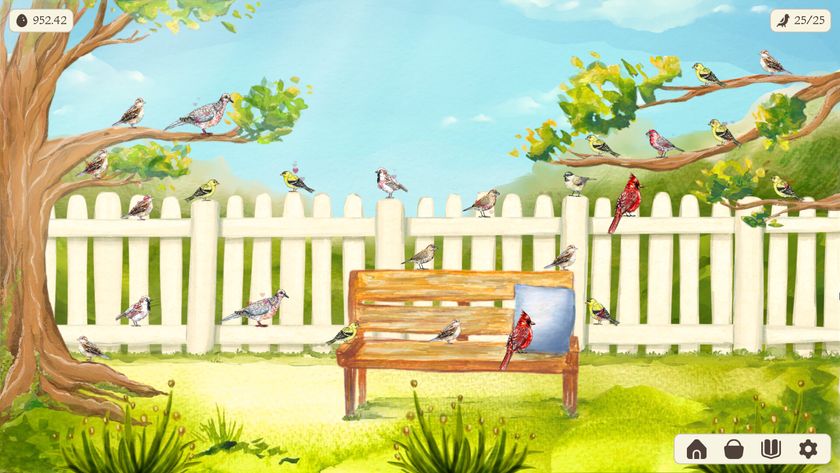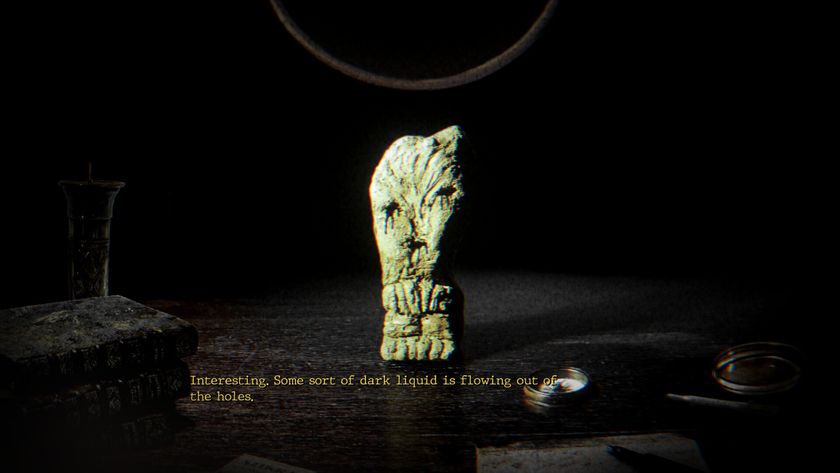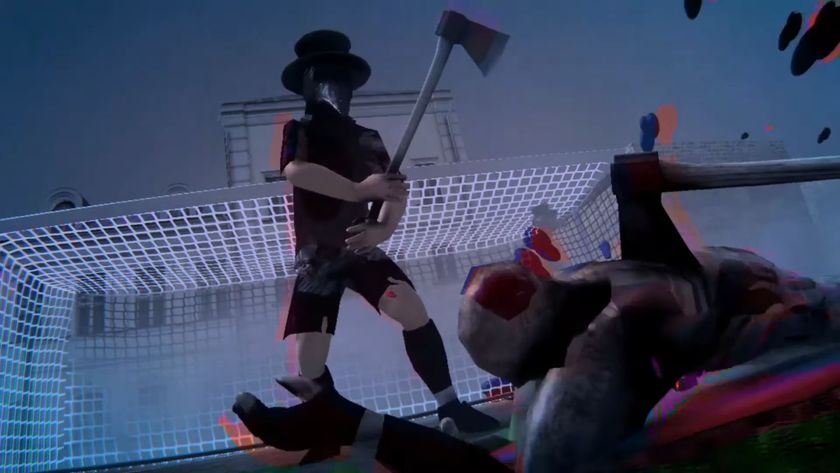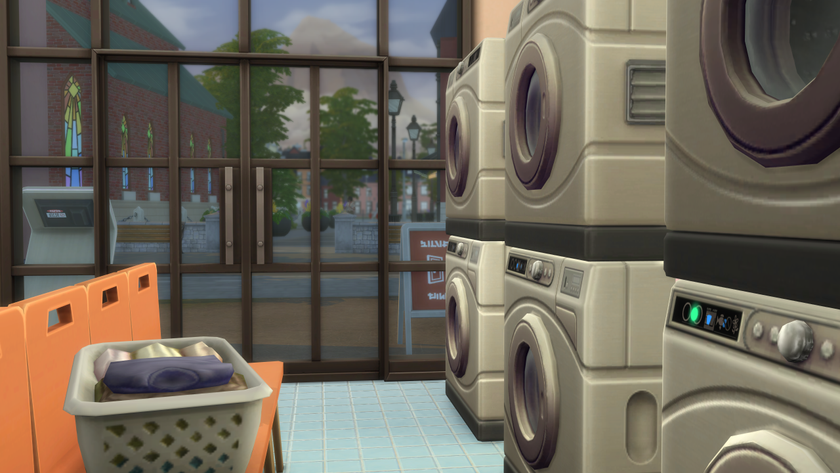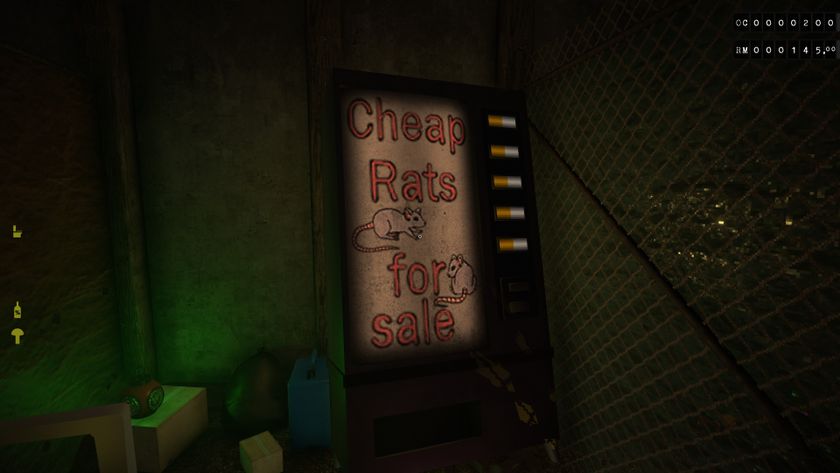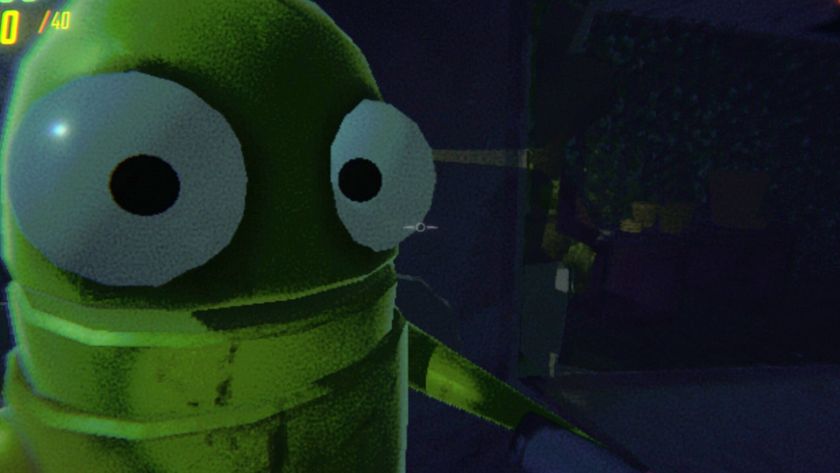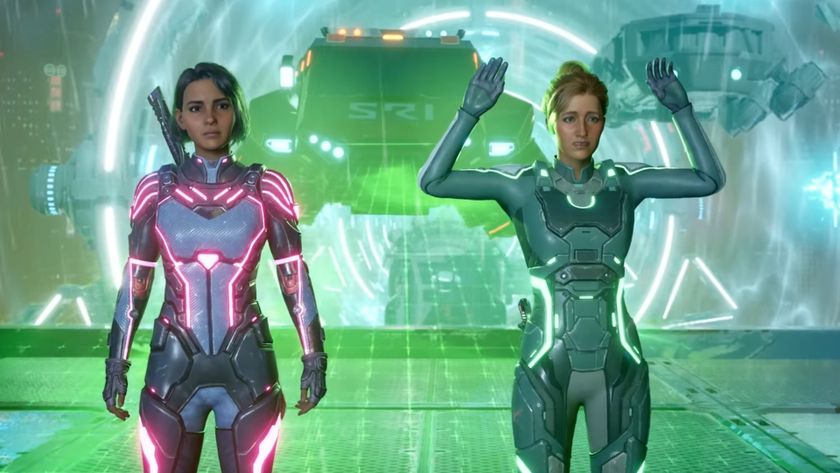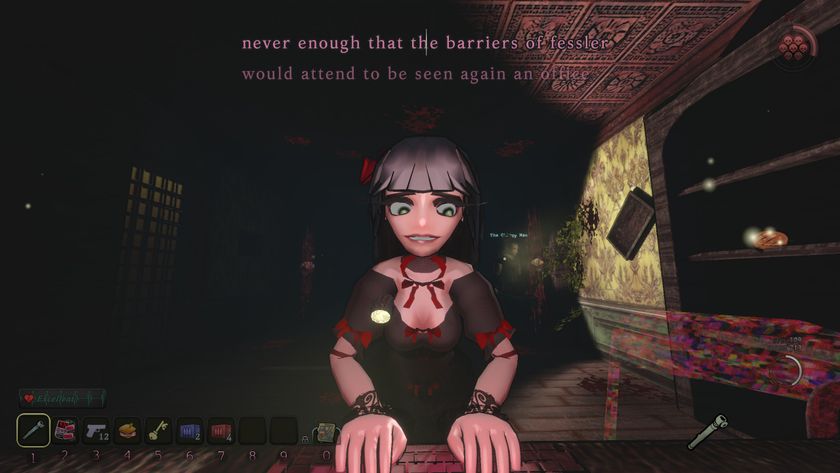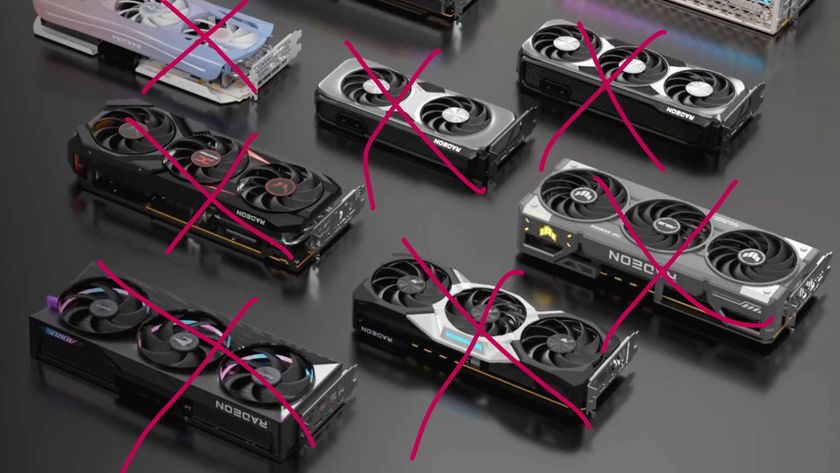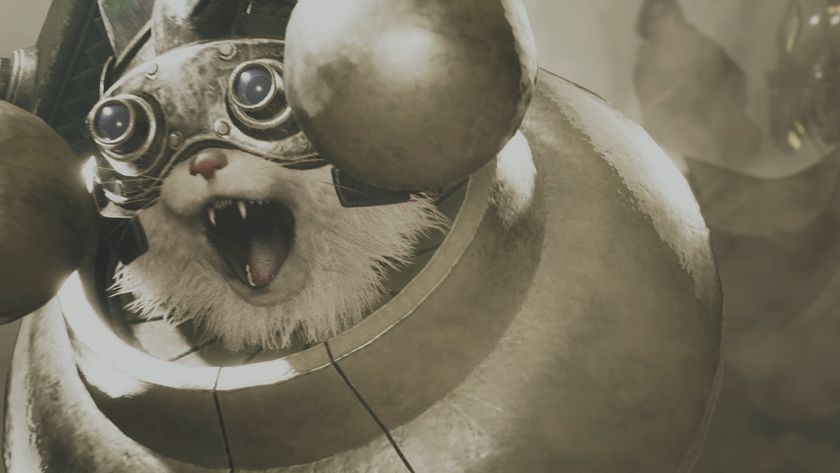Omerta: City of Gangsters hands-on: we break silence on the intriguing mafia strategy

Poor old Haemimont games. XCOM: Enemy Unknown's roaring success may have proved that strategy had mainstream appeal, but this is the kind of thing the devs behind recent installments of city-builder Tropico have been saying for ages. Omerta: City of Gangsters is their latest effort in this field and, like XCOM, meshes longer term strategic goals with ten minute blasts of turnbased combat, all set in the mean streets of Prohibition-era Atlantic City.
Using a detailed 3D overworld, you recruit hoods, buy up joints, set up rackets and muscle out the competition. Not everyone's a pushover however, and you may need to send the boys (and girls) round to straighten them out. Usually by shooting them or - my preference - kicking them repeatedly in the balls until dead.
Your foot-soldiers have vital use in the strategy game too. Each instruction you give to the game, be it to shoot up a local speakeasy, bribe a cop, or scam a movie star needs to be conducted by one of your growing roster of thugs. Being fresh off the boat limits your options, however: to start with it's just me, Tubsy Baloney, quickly joined by my consilieri old Freddie Tanino and some guy called Squigs who claims to be a 'level 1 burglar'. This seems like a poor thing to put on your CV, but I'm an unusually liberal 1920s aspiring crime overlord, so I won't hold it against him.

Any action takes some time to execute, with your crew members pelting off across the city in real-time, and with few opportunities to multi-task, this makes for a slow start to the game. But it's possibly for the best: there's a lot to take in. As you build your illicit business empire you'll need to keep track of a number of resources: beer, liquor, firearms and two flavours of money - dirty and clean. You can only buy property with clean cash, so any dosh you make from running guns or your illegal booze factories needs to be thoroughly laundered. This means setting up a complex web of businesses and fronts; buying or brewing booze; supplying it to your speakeasies or selling it to competitors for a high price; humbling your enemies with a mix of economic and physical force; and making yourself a friendly and fearsome figure in your community.
When the heat gets too much, you'd better hope you've cultivated the right contacts: people in high places might be able to do you a favour, or take a bung. If that fails, you can just shop another gangster in your stead. And things do often go south - criminals are not known to be trustworthy sorts, and so it proves, with mission rewards sometimes yoinked last minute, or extortion techniques applied. A cop offering you some grog from an impound lot might later renegue on the deal and stitch you up - forcing a combat mission. In my game, a rival scuzball decided I hadn't paid him quite enough for his services and broke one of Squigs' legs, crippling him for a long time thereafter.
Clearing up such a mess sometimes means getting tough and starting a combat mission - although, in the singleplayer campaign, these are largely presented as scripted plot beats. Rival hoodlums might abduct one of your guys, forcing you to launch a rescue mission, or you might have to break into a police department to whack a witness, or you may simply just want to wipe out some uppity bootleggers who are cramping your trade.
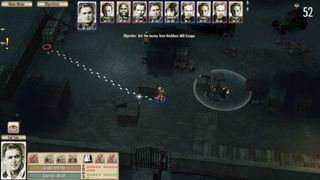
Combat is a rather rich tactical fare, with each of your selected crew-members wielding extremely divergent skills. Not only do their upgradeable perks and traits give them a predisposition to certain kinds of combat, but the very weapons they are holding radically change the way they operate. This is not just in the sense that certain guns have different optimal ranges or stopping power: a pistol wielding thug will be able to unleash a volley of shots at his enemies feet, causing them to panic, while a hood with a tommy-gun can hit multiple enemies by firing in an arc.
The biggest gaming news, reviews and hardware deals
Keep up to date with the most important stories and the best deals, as picked by the PC Gamer team.
The way all these things interact allows for some elaborate combo chains - thanks to the fact that the game doesn't use alternate turns as the basis for its encounters. Instead, the games cycles through the entire roster of combatants, shown at the top of the screen, with smarter characters activating more often. Tubsy Baloney is one such bright spark, and though his right hook is pretty puny, he acts more often than nearly anyone else, allowing him to land a lethal flurry of blows before his target's activation comes round. If an enemy gets a shot in, Tubsy can then use his special ability to recuperate half that lost health - an ability which recharges every time he takes someone down.
It doesn't necessarily make much sense, attacking someone whose wielding a tommy gun and pounding them repeatedly in the testicles while they try to figure out how to operate the trigger, but, taken in the abstract, it does create interesting tactical opportunities.
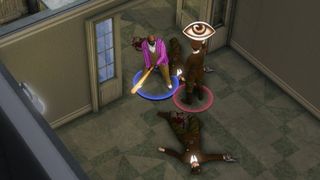
Eventually the heat gets too great for our crew, and they're forced to up sticks to a new neighbourhood. There we begin the process of renting property, establishing businesses, burglary and bootlegging as before. The number of businesses available and their interrelated effects are perhaps a little bewildering: rent a building and you can establish breweries, soup kitchens, accountants, counterfeiters, labor unions and more, while setting up an inexplicably differentiated “joint” permits speakeasies, ponzi schemes, boxing arenas, pizzerias, bookmakers and loan sharks. Pizzerias cause fear, for reasons that are not entirely clear, while soup kitchens make people happy. It's good to have a mixture of the two - in general, I mean. As a recipe, combining soup and pizza is not recommended. The power of cannelloni, meanwhile, is as yet undetermined.
Like much of the game's oddly abstracted mechanisms, the function of all these facilities is not immediately clear, and the confusing, ambiguous iconography doesn't help much either. But a bigger concern is that the game's strategy element might not escalate its interest even as its simulation becomes more complex. For the few hours I spent as a jazz-era mob boss, however, Omerta proved it had a lot more to say about turnbased tactics and strategy than I'd anticipated. With the likes of XCOM reigning supreme, you might not bet on Omerta becoming the Don, but its got a lot more brains and brawn than your average bootlegger.

Developer: Haemimont Games
Publisher: Kalypso Media
Release: 1 February 2013
Link: www.cityofgangsters.com
